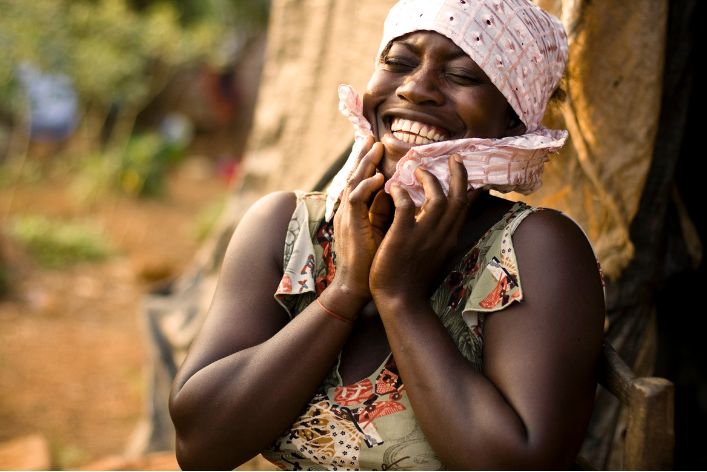Africa, one of the world’s seven continents, differs distinctly from others.
Experts widely believe humans first emerged there.
Africa boasts a rich variety of cultures.
It has a diverse and rich cultural legacy, abundant natural resources, and breath-taking tourist sites.
It also has a breathtaking range of landscapes, including enormous deserts, tropical rain forests, rocky mountains, and lush grasslands.
The continent also has a greater diversity of flora and animals than any other continent.
Every year, a growing number of travellers from all around the world visit this amazing continent to admire its beauty.
These 5 fascinating facts about Africa are essential to know.
Fascinating Facts About Africa
Africa is the second-largest continent in the world
Covering over 11 million square miles, Africa comprises 20% of Earth’s land and 5.7% of its surface.
North Africa, East Africa, Central Africa, Southern Africa, and West Africa are its five sub-sections.
One of the most intriguing facts about Africa is that the continent’s width and length are roughly equal.
Africa stretches 4,504 miles from Cape Town, South Africa, to Tripoli, Libya, and 4,355 miles from Dakar to Mogadishu.
Its fascinating geography and intriguing history combine to make it a continent with astounding biodiversity.
There are 54 nations and many disputed regions. Before it was divided into Sudan and South Sudan, Sudan was the largest country in Africa.
In terms of size, Algeria is currently the biggest nation in Africa.
Innovative Tech Solutions, Tailored for You
Our leading tech firm crafts custom software, web & mobile apps, designed with your unique needs in mind. Elevate your business with cutting-edge solutions no one else can offer.
Start NowCairo is both Egypt’s largest city and its capital.
The idea that Africa is mostly isolated from the world is common, but it’s far from reality.
The Strait of Gibraltar, less than 9 miles from Africa, separates Morocco from Spain. Ferries connect Africa to Europe.
With 1,404,827,471 inhabitants or about 16.72% of the world’s population, Africa is the second-largest continent (as of July 2022).
Africa, as the second-largest continent, unsurprisingly holds the most genetically diverse population on the planet.
Read: The African Travel Experience: Safety Tips for Exploring the Continent

Between 1500-2000 languages are spoken in Africa
Africa has at least 3,000 ethnic groups.
Over 2,000 languages and dialects are spoken across the continent.
Arabic is the most common language in Africa, followed by English, Swahili, and French.
Nigeria, the most populous nation in Africa, is home to over 500 different languages.
This makes it one of the countries with the highest concentration of linguistic diversity worldwide.
Africa’s relative uniformity is one of the noticeable distinctions between it and most other language regions.
Experts classify almost all African languages into four major phyla: Afroasiatic, Nilo-Saharan, Niger-Congo, and Khoesan.
Inter-ethnic communication involves the usage of about a hundred different languages.
Arabic, Somali, Berber, Amharic, Oromo, Igbo, Swahili, Hausa, Manding and Yoruba are spoken by tens of millions of people.
Read: The Rich Diversity of African Languages and Their Importance
Africa is the source of the world’s longest river
The Nile River, which empties into the Mediterranean Sea at a length of 4,258 miles (6,853 kilometres), is the longest river in the world.
It passes through 11 nations on its way north: Tanzania, Uganda, Rwanda, Burundi, the Democratic Republic of the Congo, Kenya, Ethiopia, Eritrea, South Sudan, Sudan, and Egypt.
In fact, it was essential to the growth of ancient Egypt.
The ancient Egyptians invented irrigation techniques to maximise the amount of land they could use for agriculture and feed a thriving population.
Today, the river still acts as a source of irrigation and a crucial waterway for trade and transportation.
The White Nile, Blue Nile, and Atbara are its three principal tributaries.
It is home to the world’s oldest university
The University of Karueein, also known as the Athens of Africa, was established in Fez, Morocco, in 859 AD by Fatima al-Fihri and was first known as a madrassa.
It is the oldest continuously running educational institution in the world.
Seamless API Connectivity for Next-Level Integration
Unlock limitless possibilities by connecting your systems with a custom API built to perform flawlessly. Stand apart with our solutions that others simply can’t offer.
Get StartedThe oldest university in Europe was established in Bologna, Italy, in 1088.
The university was originally built as a sizable mosque before becoming a centre for learning.
The University of Al Quaraouiyine, which was founded as a Madrasa (Islamic School) by Al-Fihri, is still in operation today.
It is the oldest continuously operating educational institution in the world and the first to grant degrees in Islamic studies, mathematics, language, and medicine at various levels of study.
With a focus on classical Arabic language, linguistics, and law, the University of Al Quaraouiyine today confers degrees in Islamic, theological, and legal subjects.
This state-run institution was established in 1963.
It’s interesting to note that instruction is still given in a very traditional way, with students seated in a semi-circle around a Sheikh (an Islamic scholar) who directs them to read certain passages of books, quizzes them on issues of grammar, law, or interpretation, and clarifies complex ideas.
The oldest library in existence is located next to the mosque and the University of Al Quaraouiyine.
After a significant refurbishment led by another woman, this time the architect Aziza Chaouni, the library should soon be reopened.
Read: African Literature: Examining the Works of the Continent’s Greatest Writers

The richest man ever was an African
Musa I of Mali, also known as Mansa Musa, is regarded as one of the richest people in history.
One of the rich Sahelian kingdoms that grew along the Saharan slave trade routes in the later medieval era was the Mali Empire, which had Musa as its eleventh emperor.
Additionally, Musa ascended to the throne in 1312 as the ruler of the Mali Empire in West Africa.
The kingdom was already affluent at that time. Mansa Musa, however, brought Mali greater prosperity, utilising the area’s natural riches, such as salt and gold.
As he extended his authority there, Mansa Musa significantly impacted numerous nations.
He was so wealthy that when Musa decided to perform the Hajj in 1324–1325, he literally carpeted the road to Mecca with gold and established his empire as a global power.
Musa was renowned for his benevolence and religiosity.
Every Friday during his tour, he constructed a mosque and distributed so much gold that it caused a twelve-year economic downturn in some parts of the region.
One of the biggest empires in West Africa was the Mali Empire.
The culture of West Africa today has been greatly influenced by the spread of its language, laws, and practices.
Estimates of his net worth at the time of his death in 1937, adjusted for the late 2000s, range between US$300 billion and US$400 billion.
Read: Mansa Musa: The Downfall of the Richest Man in History
Conclusion
Africa’s vast history, cultural diversity, and natural wonders make it a continent of unparalleled intrigue.
From its stunning landscapes and rich languages to its ancient universities and remarkable leaders, Africa’s contributions to the world are immense and enduring.
Transform Business with Custom CRM & ERP Solutions
Elevate your operations with a CRM or ERP tailored for you. Let’s build the perfect solution that others can't replicate—crafted to match your business's needs like no other.
Get StartedWhether you’re drawn to its vibrant cultures or captivated by its natural beauty, Africa offers endless opportunities for exploration and learning.
As we continue to uncover more about this incredible continent, it’s clear that Africa’s significance, both historically and today, is truly extraordinary.
Dive deeper into Africa’s story, and you’ll discover even more reasons to be fascinated.
Before You Go…
Hey, thank you for reading this blog post to the end. I hope it was helpful. Let me tell you a little bit about Nicholas Idoko Technologies.
We help businesses and companies build an online presence by developing web, mobile, desktop, and blockchain applications.
We also help aspiring software developers and programmers learn the skills they need to have a successful career.
Take your first step to becoming a programming expert by joining our Learn To Code academy today!
Be sure to contact us if you need more information or have any questions! We are readily available.











